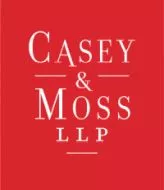- with readers working within the Securities & Investment and Construction & Engineering industries
I will never forget the first time I received a judge's Endorsement. We had won our case, putting an end to months of protracted litigation. I remember poring over the judge's reasons, carefully reviewing the analysis and spotting all of the cases taken from our factum. After the excitement subsided, one of my colleagues pointed out something I had no idea was required: we now needed to convert the judge's reasons into an issued Order. Even though the judge's decision was immediately effective, the precise terms of that decision needed to be set out in a signed Order, approved by the parties as to form and content and issued and entered by the Court registrar.
But what happens if the parties cannot agree on the form and content of the draft Order? What if there are disagreements about what the judge intended to order in his or her reasons?
Thankfully, Rule 59.04(9) of the Rules of Civil Procedure provides a clear mechanism for settling an Order where the parties remain at a deadlock. Rule 59.04(9) states that
[i]f an objection is taken to the proposed form of the order in the course of its settlement before a registrar, the registrar shall settle the order in the form the registrar considers proper and the objecting party may obtain an appointment with the person who made the order to settle the part of the order to which objection has been taken, in which case the objecting party shall serve notice of the appointment (Form 59D) on all other parties who participated in the hearing or conference and file it, with proof of service, at least seven days before the appointment date.1
In other words, if the parties cannot agree on the form of the Order, any party can serve a "Notice of Appointment to Settle Order" (Form 59D) to attend before the judge who made the Order to settle its terms. Similar to a Notice of Motion, a Notice of Appointment requires the objecting party to set out the purpose of the appointment, the grounds for the relief being sought, and the documentary evidence to be relied on at the appointment. Best practice is to include all relevant materials that the judge will need to settle the Order, including the underlying Endorsement, the originating process or motion, the form of the draft Order proposed by the objecting party, and the draft proposed by the responding party or already settled by the registrar.
If the Order was made by a court consisting of more than one judge, the appointment will be before the judge who presided at the hearing or, where unavailable, any other judge who participated in the hearing.2 Should the judge cease to hold office or become incapable after making the order but before it is signed, any other judge may settle and sign it.3
It should be noted that settling an order is not a mere formality. For example, if the Order contemplates the payment of money into or out of Court, a judge's Endorsement will not be sufficient to effect payment.4 Moreover, a party wishing to appeal a court's decision will not be able to perfect their appeal without first getting an issued order. The Court of Appeal recently confirmed that an appeal always lies from the court's order, not its reasons.5 It is the appealing party's obligation to take all necessary steps to perfect their appeal, including drafting the order and, failing agreement of the parties, seeking an attendance to settle it.6
Footnotes
1 Rules of Civil Procedure, RRO 1990, Reg 194, Rule 59.04(9).
2 Ibid, r 59.04(10).
3 Ibid, r 59.04(14).
4 Ibid, rr 72.02(2); 72.03(2).
5 Toronto Standard Condominium Corporation No. 2931 v Tsatskin, 2025 ONCA 323 (CanLII) at para 6.
6 Ibid at para 7.
The content of this article is intended to provide a general guide to the subject matter. Specialist advice should be sought about your specific circumstances.


